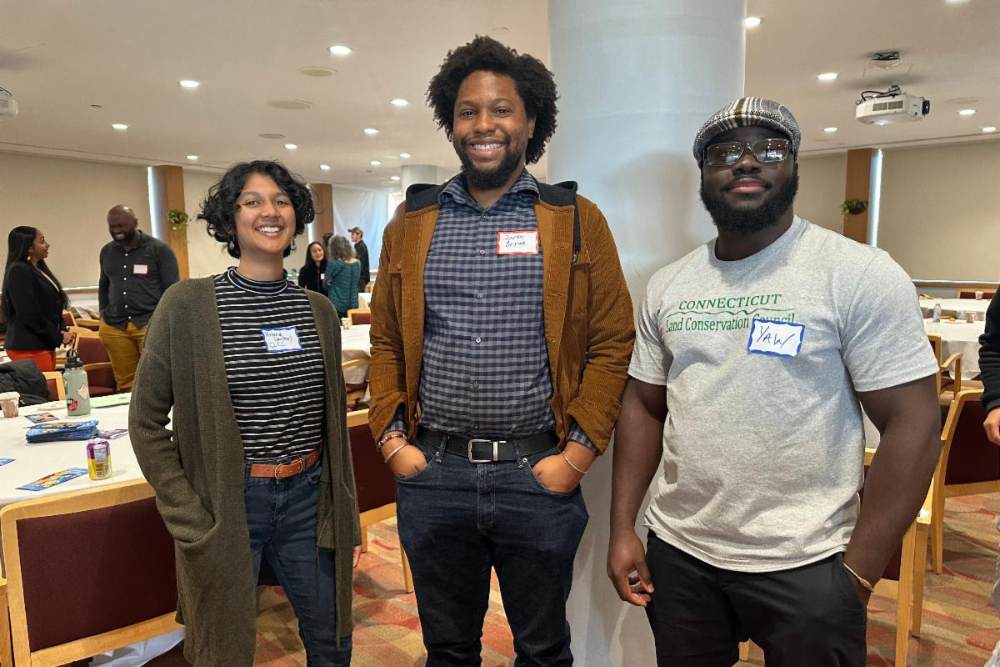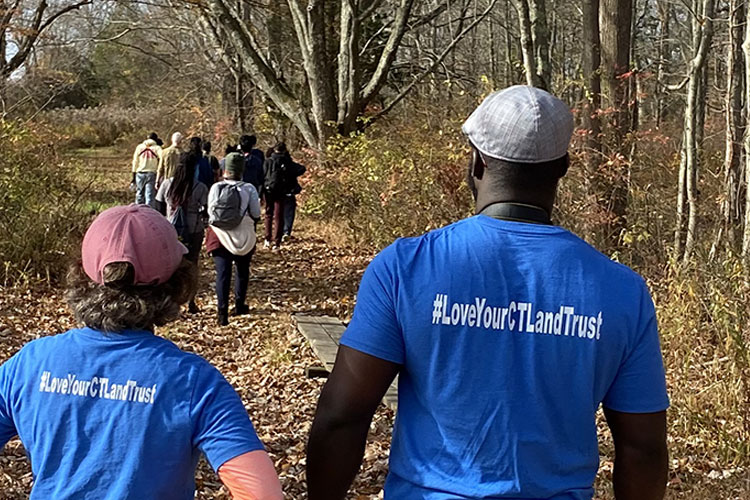News

Over the past two months, I have had the privilege of attending several events on the topic of land conservation efforts in Connecticut. All three of those events—the Latine and Puerto Rican Voices for Climate Action Roundtable Discussion at Hartford’s Capitol Building, the Regional Conservation Partnership Network Gathering at UMass Amherst, and the Building Community for Environmental Justice Conference at Wesleyan—centered around the importance of community engagement in conservation. It is easy to lose sight of why we strive to protect Connecticut’s lands. Too often, we reduce our success to acres of land preserved without asking how that preservation impacts the people around the land. We assume that we know what is best for those communities despite not sharing their experiences.
The Latine and Puerto Rican Voices for Climate Action Roundtable Discussion shed light on this assumption and other concerns in conservation. The speakers stressed the importance of including underrepresented groups in conversations about the environment as well as recognizing the existence and value of community knowledge.
The RCP Network Gathering presented similar themes during the keynote panel and throughout its workshops. The panel began with a land acknowledgement and later delved into a discussion around how local communities already have expertise, plans, and capacity to care for their lands.
I saw this theme mirrored in the Building Community for Environmental Justice Conference as well. The introduction to the event highlighted the need to use conservation as a method of connecting nature to underprivileged groups, and later workshops—including a community conservation program workshop led by my colleagues Yaw Owusu Darko and Jovan Bryan—compounded this message with dialogue around including all people who are affected by a policy rather than just the first few that we think of. All three of these events presented another key point related to conservation work: A person’s input and experiences in relation to land preservation are valuable regardless of what their background or credentials may be.
As I continue my role with the Connecticut Land Conservation Council, I will bring these lessons about the centrality of community engagement in conservation into my work. I encourage you to do the same in your organization.
Thank you for reading.
Photo Credit: Ashley Stewart
![types] types]](https://ctconservation.org/wp-content/uploads/Victoria-Jaskaran-headshot.jpg)
Tags:

